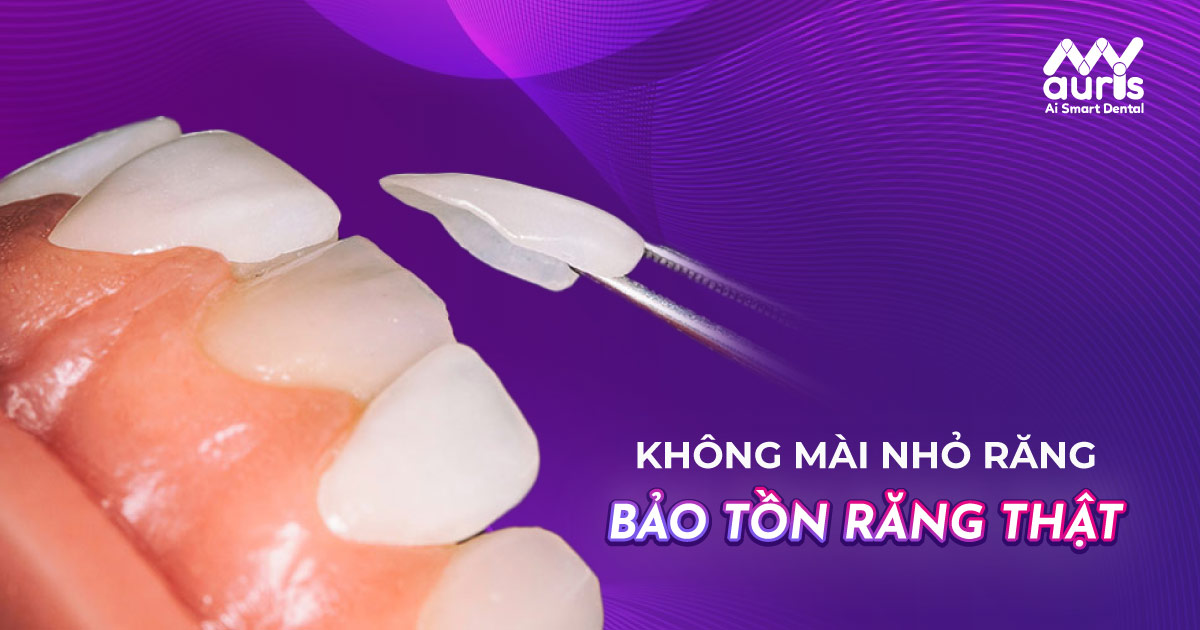
What is dental veneer?
Dental veneers are a solution that uses materials only 0.3mm thick to cover teeth with imperfections. Because the veneer is only 0.3mm thick, there is no need to reduce the original tooth size, preserving the natural tooth as much as possible and keeping the pulp completely unharmed.
Dental veneers effectively correct defects in molars such as tooth decay, chipped or broken teeth, gaps, misalignment, yellowing, or discoloration from antibiotics. These conditions affect the aesthetic appearance of the dental arch and impact bite and chewing ability.
Veneers are made with a frame and crown entirely from pure porcelain, giving them a natural color identical to real teeth. They have high strength and durability, so you can confidently chew hard foods without worrying about chipping or sensitivity. Crafted using the most advanced technology available, the finesse and precision are of the highest quality.














